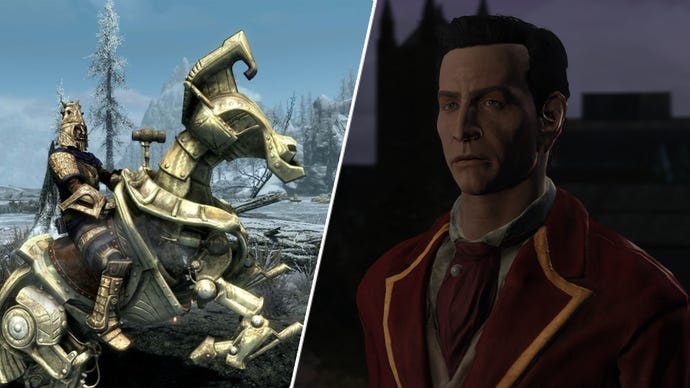"Who lets you into the cool kids club?" Fallout: London's project lead on Bethesda's Creations and the ever-controversial issue of paying for mods
"I think we’re on the cusp of pure monetisation. I don't see that as good or bad, I think it depends on the content."
Paying for mods. If you’ve ever said those three words to anyone who plays games or makes mods for them, odds are you got a pretty strongly held opinion in response, or at least an acknowledgment that - as many Facebook relationship statuses say - it’s complicated.
With Bethesda’s latest attempt at creating a system designed to facilitate such a thing having proven pretty much as polarising as its predecessors, we recently asked Dean ‘Prilladog’ Carter, project manager of the massive and free Fallout 4 mod Fallout: London, how he views the current state of play when it comes to whether mods are paid, or remain free to play.
“I wish they would just choose something,” Carter said when I brought up Bethesda’s Creations in the interview, which also featured chat about the cut quest line that’ll be arriving in a future update and how both John Bercow and Neil Newbon ended up starring in it.
“This is the third time they’ve tried to do it and they kept backpedalling,” the modder continued, “If they had stuck to the first one they did, it would have been controversial, but by now - which the first time was probably about 10 years ago they raised it - if they had stuck to that, 10 years on, people would just be like ‘Oh’. But no, they did it again, they backpedalled. This is the third time, maybe third time's the charm, but instantly it seems to have been forgotten about, and the way they implemented it, this is just my opinion, is weird in itself.
“It's clear that they're boosting Skyrim, but they’re not boosting Fallout, probably because of Fallout 76. The way it is done seems to be so ham-fisted at every attempt. Like, just choose one, stick to it and make that the model moving forward. I really wish that, because then the modders themselves would know, this could be something I can earn a living for. At the moment, no one knows. Some people are, but now it seems like a cool kids club and it's like who lets you into the cool kids club? Because we have people on our team that are part of it, but not other people, but they’ve both applied with the same CV, which is ‘We were on Fallout: London or we have done this large project’. Some people got chosen, not others, but their applications are the same. So, who’s choosing it? It's weird.”
“I think we’re on the cusp of pure monetisation, I don't see that as good or bad, I think it depends on the content,” Carter added regarding the broader situation modding finds itself in, “I think that collectively it needs to be worked out in the industry, do mods equal free or do mods equal being paid, and then that needs to become the norm.
“What I would hate is for companies to just look at mods as a way that they can earn money without giving anything to the people, because that, I think, is a dangerous point of view.”
Where do you stand on the issue of paying for mods? Let us know below, and make sure to check out our array of helpful guides to Fallout: London's companions and quests.

